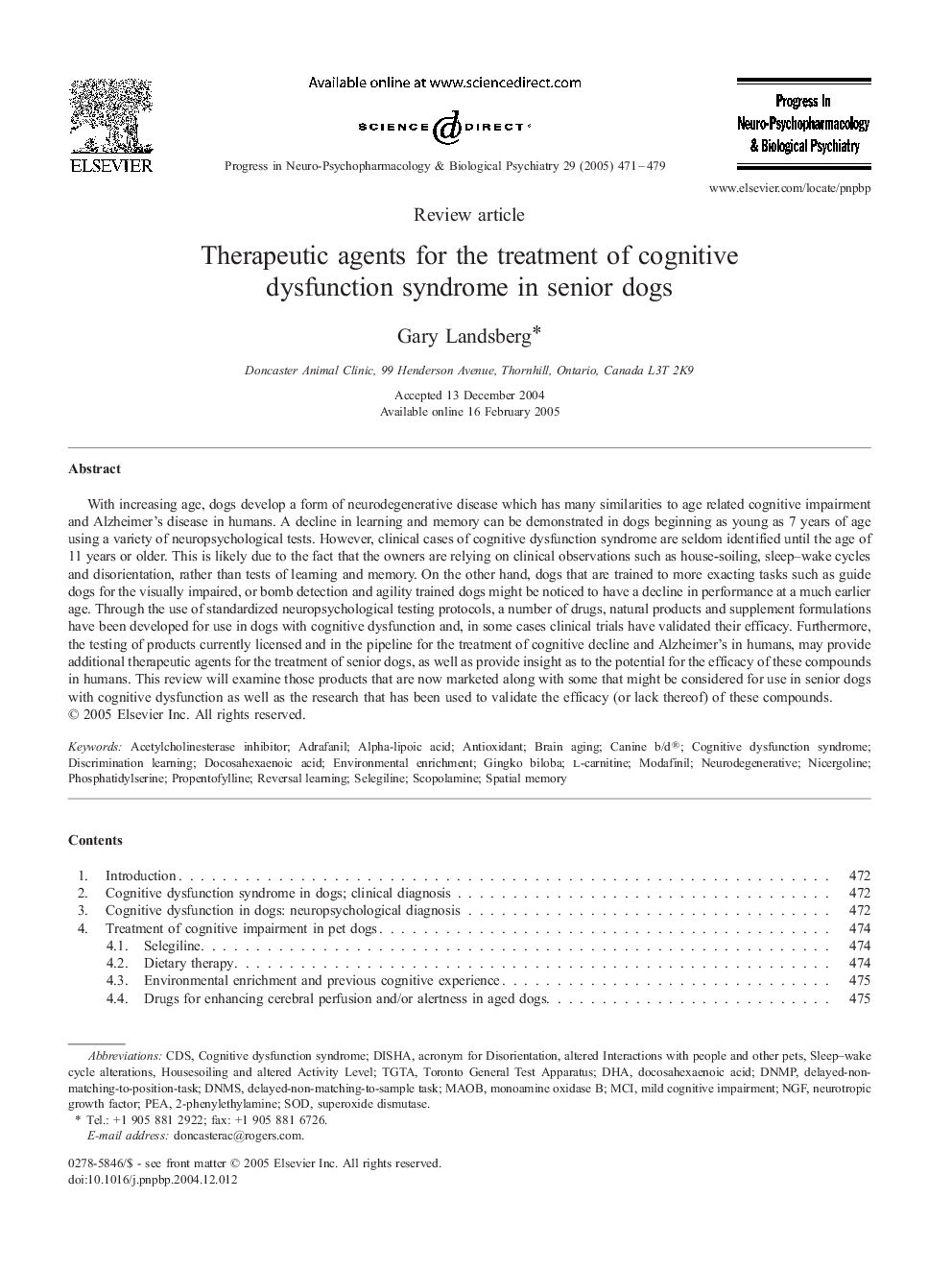| Article ID | Journal | Published Year | Pages | File Type |
|---|---|---|---|---|
| 9016351 | Progress in Neuro-Psychopharmacology and Biological Psychiatry | 2005 | 9 Pages |
Abstract
With increasing age, dogs develop a form of neurodegenerative disease which has many similarities to age related cognitive impairment and Alzheimer's disease in humans. A decline in learning and memory can be demonstrated in dogs beginning as young as 7 years of age using a variety of neuropsychological tests. However, clinical cases of cognitive dysfunction syndrome are seldom identified until the age of 11 years or older. This is likely due to the fact that the owners are relying on clinical observations such as house-soiling, sleep-wake cycles and disorientation, rather than tests of learning and memory. On the other hand, dogs that are trained to more exacting tasks such as guide dogs for the visually impaired, or bomb detection and agility trained dogs might be noticed to have a decline in performance at a much earlier age. Through the use of standardized neuropsychological testing protocols, a number of drugs, natural products and supplement formulations have been developed for use in dogs with cognitive dysfunction and, in some cases clinical trials have validated their efficacy. Furthermore, the testing of products currently licensed and in the pipeline for the treatment of cognitive decline and Alzheimer's in humans, may provide additional therapeutic agents for the treatment of senior dogs, as well as provide insight as to the potential for the efficacy of these compounds in humans. This review will examine those products that are now marketed along with some that might be considered for use in senior dogs with cognitive dysfunction as well as the research that has been used to validate the efficacy (or lack thereof) of these compounds.
Keywords
MAOBnicergolineGingko bilobadNMP2-phenylethylaminePEASelegilineDNMSNGFNeurodegenerativeAntioxidantmild cognitive impairmentScopolaminealpha-lipoic aciddocosahexaenoic acidl-CarnitineSpatial memoryDHASODcognitive dysfunction syndromeSuperoxide dismutaseEnvironmental enrichmentPhosphatidylserineModafinilreversal learningacetylcholinesterase inhibitormonoamine oxidase BMCIPropentofyllineBrain agingCdSDiscrimination learning
Related Topics
Life Sciences
Neuroscience
Biological Psychiatry
Authors
Gary Landsberg,
